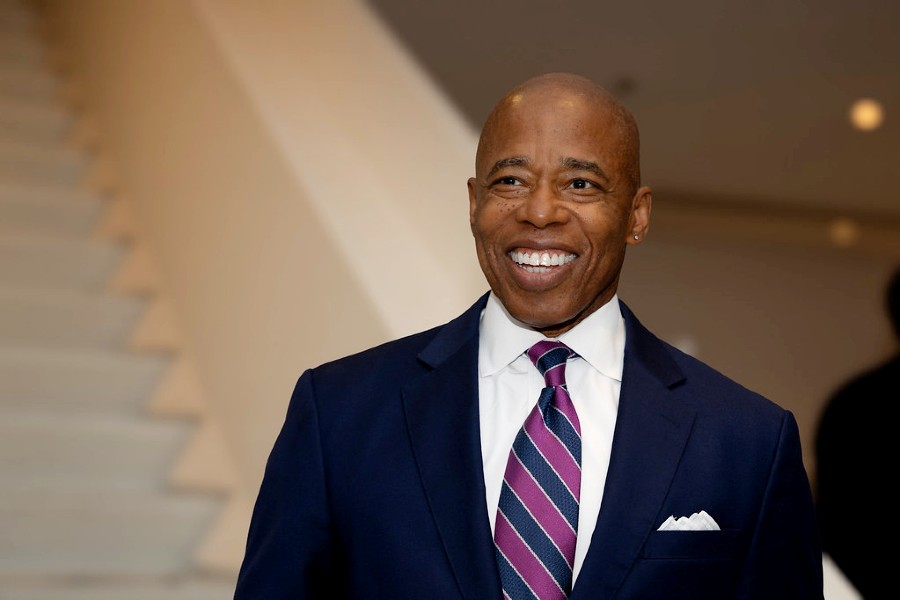Mumia Abu Jamal, birth name Wesley Cook, is the author of seven book, numerous articles for the Black Panther Press and hundreds of radio programs for NPR and Democracy Now. Mumia has spent 30 years in Penn State prisons, including 29 years in solitary confinement.
The most surprising aspect of the documentary, “Mumia, Long Distance Revolutionary,” is that it doesn’t address the issue that Mumia Abu Jamal is most famous for. In 1981, Mumia was first given the death penalty for killing a policemen in a controversial case. The sentence was later commuted to life imprisonment. He maintains his innocence.
“I wanted this to be the definitive film on this public intellectual,” said director, Stephen Vittoria. “From a practical standpoint, there was no new material [about the trial]. And had I made that film, you and I wouldn’t be talking, because there wouldn’t be a distributor.
At the age of 16, Mumia Abu Jamal started as a journalist for the Black Panthers newspaper, which reached 250,000 readers per week.
“Race was not the primary concern of the Black Panther party,” said Mumia, “It was more about class oppression.”
I learned that the state of Pennsylvania was based on a deep bed of racism.
“I really wanted to give context to the world that Mumia was growing up in and living under and growing up in,” said Vittoria. “It was a police state at the time. The great Orwellian reality is that the so-called city of brotherly love, the liberty bell is sitting on top of George Washington’s old slave quarters.”
“Although it says, “all men are created equal” that is a lie,” said one interviewee in the film. “Who are these men? They are not women, not the enslaved Africans, not the indigenous people, not even the white men without land.”
At the time Mumia was growing up, the infamous Frank Rizzo was head of the police department in Philadelphia. PA became known as a police state. Rizzo made comments said his police force would make “Atilla the Hun look like a faggot.”
After writing for the Black Panthers newspaper, Mumia was hired by NPR. “He won the coveted Columbia University Major Armstrong award for a series on the Pope’s visit to Philadelphia,” said Vittoria. “It’s one of the false narratives about Mumia that he was just this Move propagandist.”
While in prison, Mumia has accomplished what many people could not accomplish outside. Without the benefit of the internet or libraries, Mumia has published seven books, appeared on Democracy Now and other radio shows and participated in educational seminars.
 “It is impossible to communicate what life on death row is like,” said Mumia. “If it appears bizarre that we are talking through glass and I am in a box here, that is because it is bizarre.”
“It is impossible to communicate what life on death row is like,” said Mumia. “If it appears bizarre that we are talking through glass and I am in a box here, that is because it is bizarre.”
“Most humans would become very chilly under these conditions,” said Cornell West. “But Mumia has done the opposite.”
Mumia became the first honorary citizen of France since Picasso. A street in Paris is named after him. There was an outcry about this, as there was when Mumia was to appear on a monthly radio show.
“In 1995 all he had was a contract from NPR to broadcast once a month, that was his commentary on All Things Considered,” said Vittoria. “Bob Dole got on the floor at the US Senate and went absolutely ballistic, threatening to defund the Corporation for Public Broadcasting and NPR.”
“What I want people to embrace is the idea that there’s another way to think about America and another way to think about the world,” said Vittoria. “If people feel who Mumia is and what he has written about, there is a yellow brick road there to peace and integrity.”
The video:
Related articles

Become a Harlem Insider!
By submitting this form, you are consenting to receive marketing emails from: . You can revoke your consent to receive emails at any time by using the SafeUnsubscribe® link, found at the bottom of every email. Emails are serviced by Constant Contact
























